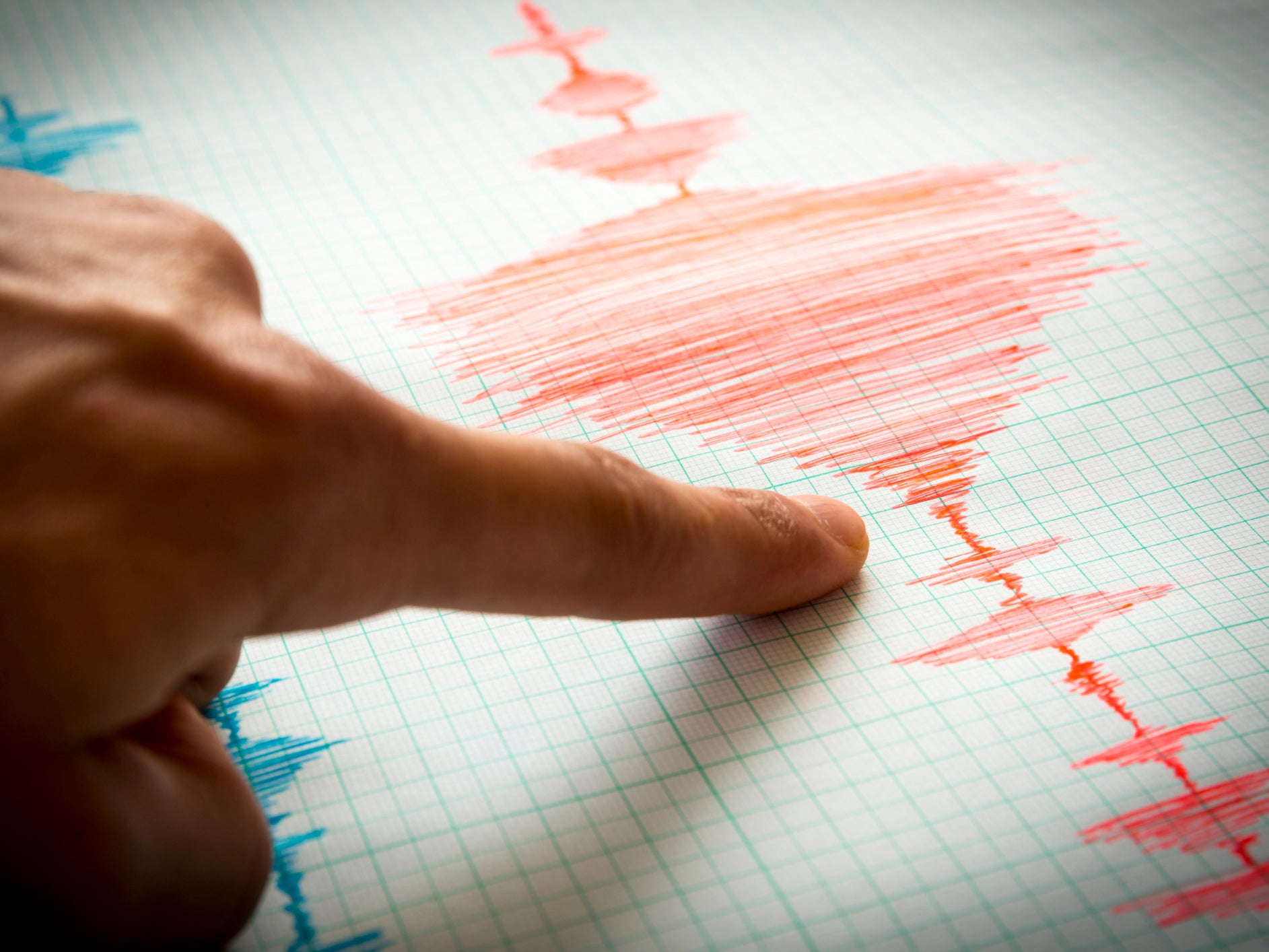Rumble of human activity fell by ‘unprecedented’ 50% during lockdowns, giving clearest glimpse of natural seismic noise in decades
‘Anthropause’ amid Covid-19 crisis causes good vibrations for seismologists, writes Harry Cockburn


Beneath our feet the Earth is constantly rumbling. Along with the seismic activity caused by enormous tectonic events such as earthquakes and volcanoes, there is also a perpetual reverberation caused by the percussion of human activity.
But new seismic data studied by scientists reveals the impact of coronavirus lockdowns around the world reduced the human-linked earth vibrations by an “unprecedented” 50 per cent.
Scientists at the Royal Observatory of Belgium and five other institutions around the world including Imperial College London, said this quiet period, likely caused by the total global effect of social distancing measures, closure of services and industry, and drops in tourism and travel, is the longest and most pronounced quiet period of seismic noise in recorded history.
The relative silence caused by the lull in human hustle and bustle allowed researchers to listen in to previously concealed earthquake signals, and the research team said the measurements could help us differentiate between human and natural seismic noise more clearly than ever before.
Co-author Dr Stephen Hicks, from Imperial’s Department of Earth Science and Engineering, said: “This quiet period is likely the longest and largest dampening of human-caused seismic noise since we started monitoring the Earth in detail using vast monitoring networks of seismometers.
“Our study uniquely highlights just how much human activities impact the solid Earth, and could let us see more clearly than ever what differentiates human and natural noise.”
The most pronounced falls in human-induced seismicity were found in urban areas, but the study also found signatures of the lockdown on sensors buried hundreds of metres underground and in more remote areas.
Human-generated noise usually dampens during quiet periods like over the Christmas/New Year period and Chinese New Year, and during weekends and overnight. However, the drop in vibrations caused by Covid-19 lockdown measures eclipse even those seen during these periods.
Some researchers are dubbing this drop in anthropogenic (human-caused) noise and pollution the “anthropause”.
Dr Hicks said: “This is the first global study of the impact of the coronavirus anthropause on the solid Earth beneath our feet.”
To gather the data, researchers looked at seismic data from a global network of 268 seismic stations in 117 countries and found significant noise reductions compared to before any lockdown at 185 of those stations.
The research began in China in late January 2020, and was followed by Europe and the rest of the world in March to April 2020.
The scientists said they tracked a “wave” of quietening between March and May as worldwide lockdown measures took hold.
The largest drops in vibrations were seen in the most densely populated areas, like Singapore and New York City, but they said considerable reductions were also recorded in remote areas like Germany’s Black Forest and Rundu in Namibia.
Citizen-owned seismometers, which tend to measure more localised noise, measured large drops around universities and schools in regions including Cornwall in the UK and Boston in America where there was a fall in noise 20 per cent larger than seen during school holidays in previous years.
Countries like Barbados, where lockdown coincided with the tourist season, saw a 50 per cent decrease in noise. This coincided with flight data that suggested tourists returned home in the weeks before official lockdown, the research team found.
Over the past few decades, seismic noise has gradually increased as economies and populations have grown, the scientists said.
The impact of this has been to make detection of some natural tectonic activity more difficult.
Lead author Dr Thomas Lecocq from the Royal Observatory of Belgium said: “With increasing urbanisation and growing global populations, more people will be living in geologically hazardous areas. It will therefore become more important than ever to differentiate between natural and human-caused noise so that we can ‘listen in’ and better monitor the ground movements beneath our feet. This study could help to kick-start this new field of study.”
The authors said they hope the work will spawn further research on the seismic lockdown, as well as finding previously hidden signals from earthquakes and volcanoes.
Dr Hicks said: “The lockdowns caused by the coronavirus pandemic may have given us a glimmer of insight into how human and natural noise interact within the Earth. We hope this insight will spawn new studies that help us listen better to the Earth and understand natural signals we would otherwise have missed.”
The research is published in the journal Science.
Join our commenting forum
Join thought-provoking conversations, follow other Independent readers and see their replies
Comments